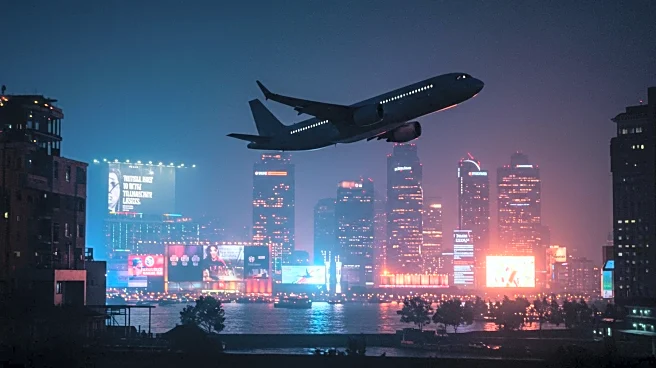What's Happening?
The travel industry is undergoing significant transformation driven by technological advancements and changing traveler preferences. According to Martin Cowen, contributing editor, the industry is adapting to new technologies, such as biometric gates at airports and high-speed trains, to enhance the travel experience. The demand for travel remains strong, with nearly 1.4 billion people traveling internationally in 2024, and projections indicating a rise to 17.7 billion international air passengers in 20 years. The industry is focusing on understanding travelers' needs and preferences to deliver seamless experiences. Growth sectors identified include live tourism, eco-tourism, and wellness, with travelers increasingly seeking experiences over specific destinations.
Why It's Important?
The transformation of the travel industry is crucial for its continued growth and ability to meet the evolving demands of travelers. As technology reshapes the industry, stakeholders must collaborate to harness these advancements and provide richer travel experiences. The shift towards experience-based travel, such as live tourism, reflects a broader trend where travelers prioritize emotional responses and memories over traditional destination-based travel. This change presents opportunities for the industry to innovate and adapt, ensuring it remains relevant and competitive in a rapidly changing global landscape.
What's Next?
The travel industry is expected to continue its transformation by embracing partnerships and collaborations to drive innovation. As global temperatures rise, the concept of 'coolcations'—choosing temperate destinations over those with extreme heat—may gain traction, influencing travel patterns. Sustainable aviation fuels and electric vehicles are potential solutions to reduce the industry's carbon footprint. The industry must remain agile and responsive to environmental changes and traveler preferences to capitalize on new opportunities and revenue streams.
Beyond the Headlines
The travel industry's transformation has deeper implications, including ethical considerations around sustainability and the impact of overtourism. As destinations face challenges related to climate change, the industry must balance economic benefits with environmental responsibility. The shift towards experience-based travel may also influence cultural dynamics, as travelers seek authentic and meaningful interactions. Long-term, the industry's ability to adapt to these changes will determine its success in navigating the complexities of global travel demand.










